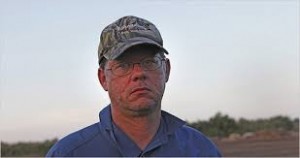Going off the grid has always been an American aspiration. From the Quakers who fled English persecution, to David Koresh, who vainly hoped to build his own world in Waco, Texas, to that earlier generation of Texans who with the help of the US Army tore themselves away from the feeble Mexican grid, bringing half of Mexico with them, our people have set their faces hard away from the order and authority of others. What could express this ideal more faithfully than the pulps? James Fenimore Cooper’s Leatherstocking Tales retail the now quaintly preposterous exploits of a self-sufficient woodsman who, with his loyal Chingachgook, adventures deep into near-virgin forest, where he does unto noble and fiendish redskins as they deserve, and then, after mostly triumphing in this American endeavor, heads for the delectably unknown West, so as to die in sight of the Pacific. Zane Grey’s Riders of the Purple Sage brings its hero and heroine into a beautiful valley whose entrance they seal off forever to save themselves from the murderous lechery of Mormon elders. How convenient; how easy! Once we have escaped the grid, won’t it be dreamlike? “Deerslayer determined to leave all to the drift, until he believed himself beyond the reach of bullets.”
Americans love to believe in happy endings; they will settle for happy interludes. One indication that Gulliver’s Travels was not written by an American is that the fairy-tale lands discovered by its narrator are parodies of, and commentaries on, his own society. How un-American! Irony only weighs us down. This fact imparts to our best nature a kind of nobly hopeful ambition; it likewise enables the “ugly American” side of us to be arrogant and cruel in its self-righteous claims. Emerson did remark, in tune with Gulliver, that “travelling is a fool’s paradise,” but he still believed that “the bountiful continent,” much of which then (1844) remained very much off the American grid, “is ours, state on state, and territory on territory, to the waves of the Pacific sea.” The ours is significant. When Americans go off the grid, they often like to take possession. Hence Emerson’s invitation. Instead of haggling with the eldest son for a share of some shabby old farm shadowed by finitude’s despotism, Americans could survey and plat their own grids, break their own soil, reinvent themselves, and get rich. One stellar reason to get off the original grid is that we ourselves don’t control it, which must be why we’re poor. In new lands, how could new lives not come to be?
Read the rest here. Via Bookforum
—Jason DeYoung
